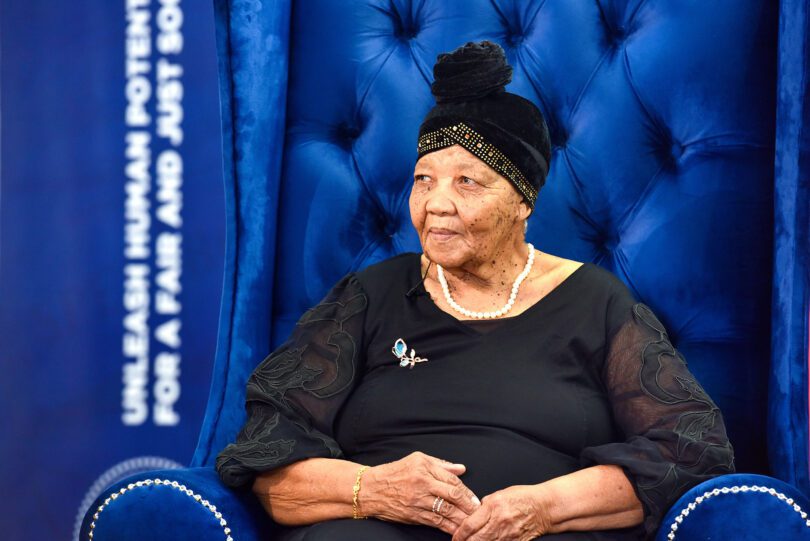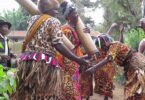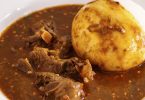Nǁng language is the most complex in the world and only one person can speak it fluently in 2024. Her name is Ouma Katrina Esau, a 90-year-old South African woman, a descendant of the Khoisan family known for their click language. Click sounds punctuate every Nǀuu word bringing a funny twist to it.
As fascinating as it is, NIIng, also known as Nǁŋǃke or Nǀuu is considered an endangered language. See Africa Today brings you more about this South African language. Read on.
Table of Contents
Why is Nǁng Language Endangered?
A small number of Nǀuu speakers has contributed to the extinction of Nǁng language. Most speakers are villages apart and they dropped it for Afrikaans and Khoekhoe which are more popular. Cumulatively, only 10 people in South Africa and Botswana can averagely speak NIIng. However, no one is as fluent as Esau who is now 90 years old.
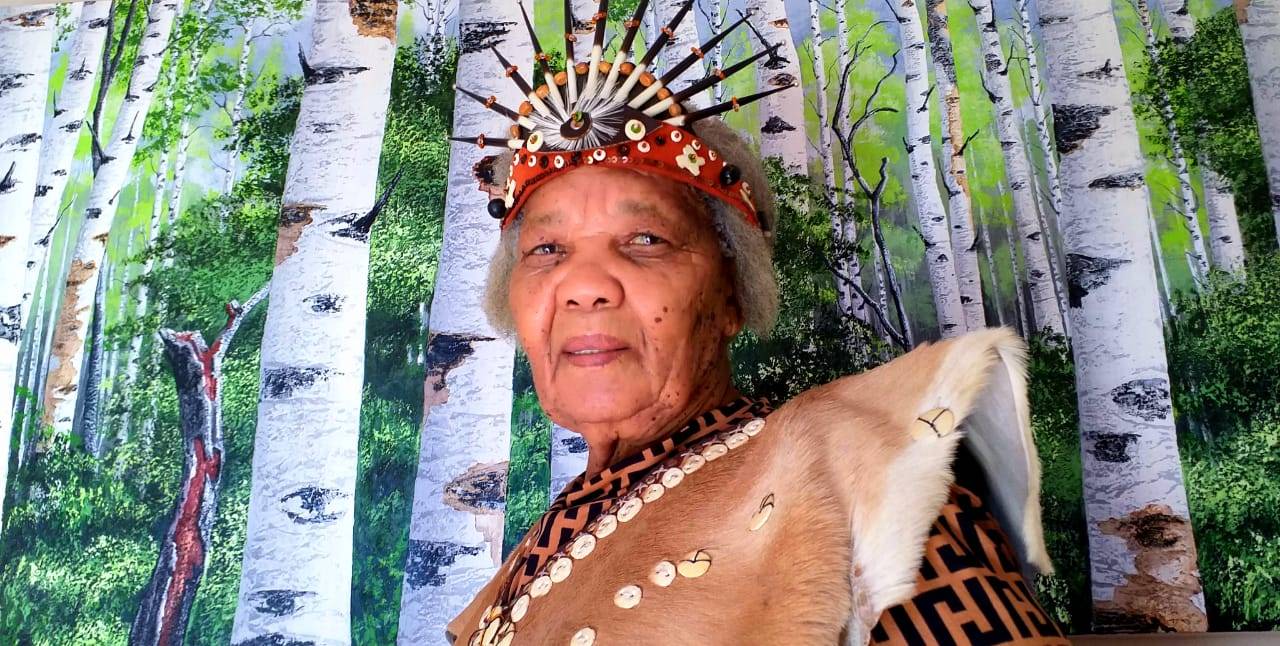
Ouma Katrina Esau is a 90-year-old South African woman. She is the only one who can speak Nǁng language fluently. This language is associated with the Khoisan who live in the Kalahari. Photo/Netwerk24
The small demographic group of speakers hasn’t done justice to passing on this language to the younger generations for continuity. This is the major reason behind the extinction of Nǀuu. Consonant and vowel click sounds explain the vocal uniqueness of this Khoisan language. There is a click-and-popping sound as you speak it.
Historically, Nǁng was a widely spoken language in the 19th century among the Khoisan, a dominant tribe back then. Their influence stretched as far as the southern part of Angola and Namibia. However, other tribes mushroomed centuries later speaking non-!Kwi languages. They grew fast and in numbers overshadowing the Khoisan people.
Nams and Afrikaans are the two major South African tribes that slowed down the further growth of the Khoisan linguistically and otherwise. Legitimate Khoisans moved to other towns where they interacted with Afrikaans and by the 1930s, Nǁng language speakers started to decrease. Then, in 1973, NIuu was declared an extinct language as the Khosan descendants also lost their living rights at the Gems National Park in Kalahari.
What is the Rarest Language in South Africa?
Nǁŋǃke/NIIng/NIuu is the strangest language in South Africa. As mentioned above, one person can speak it fluently currently. There were at least 20 senior citizens from ǂKhomani community who spoke fluently in the 90s’ but they passed on. Esau is the only surviving member of this group that started as hunters and gatherers.
What Language Do They Speak in the Kalahari Desert?
There is no ‘Kalahari language’ by itself. People associate the current inhabitants of this Southern African desert, Khoisan people, to speak the ‘Kalahari dialect’. Most of them speak khoekhoe and others Afrikaans. NIIng language sounds so foreign to them despite being the people whose ancestors spoke it fluently until the 1930s.
Who Speaks Khoe?
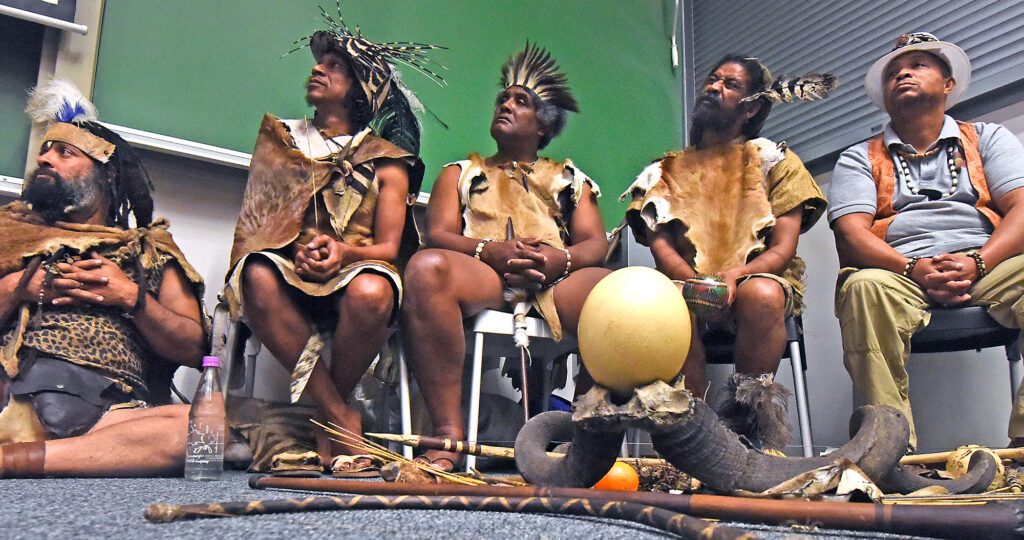
A group of men from Khoe tribe in South Africa. This tribe together with Afrikaans led to the suppressed growth of the Khoisan and also influenced language changes. Photo/University of Cape Town
A section of Namibian, South African and Botswana tribes speak khoe or Nama dialects. Specific tribes that speak khoe are:
- ǂNūkhoen found in Botswana’s western region which also speaks Nama
- Haiǁomkhoen reside in southwestern Namibia where they also speak a variant of the khoe dialect called Hailom
- Namakhoen tribe in South Africa and Southern Namibia
Khoe together with Afrikaans led to the decline and eventual fall of the Khoisan in 1930. A major similarity between khoekhoe and Nǀuu is that both dialects have clicking sounds. While khoekhoe still exists in Mzansi, it’s not as popular as Afrikaans and English which have the most speakers.
Is the Xhosa Language Real?
isiXhosa language is real and has at least seven million speakers in South Africa. The Xhosa live in the Eastern Cape Province after migrating from East Africa headed southwards centuries ago. Their interaction with the Nama and Khoisan influenced isiXhosa, which also has clicking sounds.


